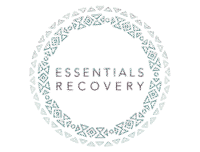Recovery is a deeply personal journey, but no one should have to walk it alone. One of the strongest indicators of long-term success in addiction recovery is the ability to access and use available support systems. From professional services to peer-led communities, addiction recovery resources provide critical structure, guidance, and encouragement. Learning how to recognize and make the most of these resources can be a turning point in building a lasting recovery.
Support doesn’t always look the same for everyone. What matters most is having access to a range of tools that help you stay grounded, connected, and resilient during challenging moments and times of growth. When individuals utilize recovery resources consistently, they are more likely to build a life that supports healing and purpose.
The Power of Community in Recovery
One of the most valuable resources in recovery is community. Being surrounded by people who understand your journey makes a powerful difference. Peer support helps reduce isolation, normalize the recovery experience, and offer hope through shared experiences.
Whether through 12-step groups, non-12-step support programs, or informal recovery meetups, being in a community helps individuals stay accountable and connected. These relationships often become a vital part of one’s support network, especially in moments of vulnerability or transition.
Many people in recovery also benefit from recovery coaches or sponsors—individuals who have walked the path and now help others by sharing their insights and guidance. Having someone to call during a tough moment or celebrate a small victory can be incredibly grounding.
Professional Support Services
Professional treatment services are a cornerstone of recovery resources. These include inpatient programs, outpatient therapy, intensive outpatient programs (IOPs), and sober living environments. Each offers a different level of structure and support based on individual needs.
Licensed therapists, counselors, and addiction specialists can help you work through the underlying causes of addiction, develop coping strategies, and create a personalized plan for sustained recovery. Some professionals offer specialized therapy, such as trauma-informed care or dual-diagnosis treatment for co-occurring mental health conditions.
Psychiatric support may also be part of a recovery plan. For individuals dealing with anxiety, depression, PTSD, or other mental health disorders, medication management can be a helpful tool when used in conjunction with therapy and lifestyle changes.
Online Resources and Virtual Support
Digital tools have made recovery support more accessible than ever. Online meetings, teletherapy, mobile recovery apps, and educational websites provide 24/7 access to support, even for those in remote areas or with busy schedules.
Virtual support groups allow individuals to connect across geographic boundaries, offering flexibility and anonymity when needed. Many treatment centers also provide virtual aftercare services or alumni programs that keep people connected after formal treatment ends.
Podcasts, blogs, and forums related to recovery can be great for inspiration and education. They can help individuals stay informed and connected between in-person appointments or group meetings.
Family and Loved Ones as a Resource
Family and close friends can play a powerful role in recovery—when boundaries are healthy and communication is open. In many cases, addiction strains or damages these relationships, but with time and support, healing is possible.
Family therapy or support groups like Al-Anon or Nar-Anon can help loved ones understand addiction and learn how to support recovery without enabling old behaviors. When families are involved in a healthy and informed way, they can become a vital part of the long-term recovery process.
Having loved ones attend meetings, help with transportation, or simply be present in moments of struggle can provide emotional support that reinforces a person’s motivation to stay sober.
Educational Resources and Skill Building
Recovery isn’t just about staying sober—it’s about building a new life. That often involves learning new skills, discovering healthy outlets, and understanding how addiction works on a physical, emotional, and behavioral level.
Educational workshops, life skills classes, relapse prevention training, and vocational support are all valuable resources. These programs help individuals rebuild self-confidence, develop financial independence, and navigate the real-world challenges that come with transitioning into a sober life.
Learning how to manage stress, build healthy relationships, and make empowered decisions are all parts of the broader recovery journey. These life skills, when reinforced over time, reduce the risk of relapse and create a greater sense of personal agency.
Aftercare and Continuing Support
Recovery doesn’t end when treatment ends. Aftercare services are designed to provide ongoing support after the initial phase of treatment is complete. This might include outpatient therapy, sober living, alumni check-ins, or continued participation in support groups.
Consistent aftercare helps prevent relapse and ensures that individuals stay connected to the tools and people that help them thrive. It also provides a safety net for when unexpected challenges arise, allowing individuals to access help before a crisis occurs.
The most successful recoveries are often those supported by a long-term, layered approach. Aftercare bridges the gap between structured treatment and full independence.
Knowing When to Ask for Help
A key part of utilizing recovery resources is learning when and how to ask for help. This can be difficult for many, especially those who are used to relying only on themselves. But recovery is not meant to be navigated alone, and recognizing the need for support is a sign of strength.
There is no shame in reaching out when things feel overwhelming or uncertain. Whether it’s calling a sponsor, scheduling a therapy appointment, or attending a meeting, each step toward connection reinforces the commitment to stay well.
Asking for help early—rather than waiting until a crisis—can prevent setbacks and strengthen resilience. The more you practice reaching out, the more natural and empowering it becomes.
Creating a Personalized Support Network
Not every recovery resource will resonate with every person. What works for one individual might not work for another, and that’s okay. Success comes from exploring different tools, finding what fits, and building a personalized support network that reflects your unique journey.
This might include a combination of therapy, peer support, family involvement, spirituality, education, and lifestyle changes. The important thing is to stay flexible and open, adjusting your recovery plan as your needs and goals evolve.
Having a mix of professional, personal, and peer resources helps create a balanced support system. It ensures that when one area falters, there are others in place to offer stability.
Recovery support
Utilizing addiction recovery resources is not a sign of weakness—it’s one of the smartest and most empowering steps a person can take. Recovery is about building a life where support is not just available but actively embraced. Whether through community, therapy, family, or education, these resources provide the foundation for healing, growth, and long-term success.
Recovery is not a solo journey. The more connected you are to people and services that understand and support your path, the more equipped you’ll be to thrive—not just survive. Take advantage of what’s available. Reach out. Stay involved. And remember that you deserve every tool, every bit of support, and every opportunity to succeed. Call us today at 855-509-1697.



